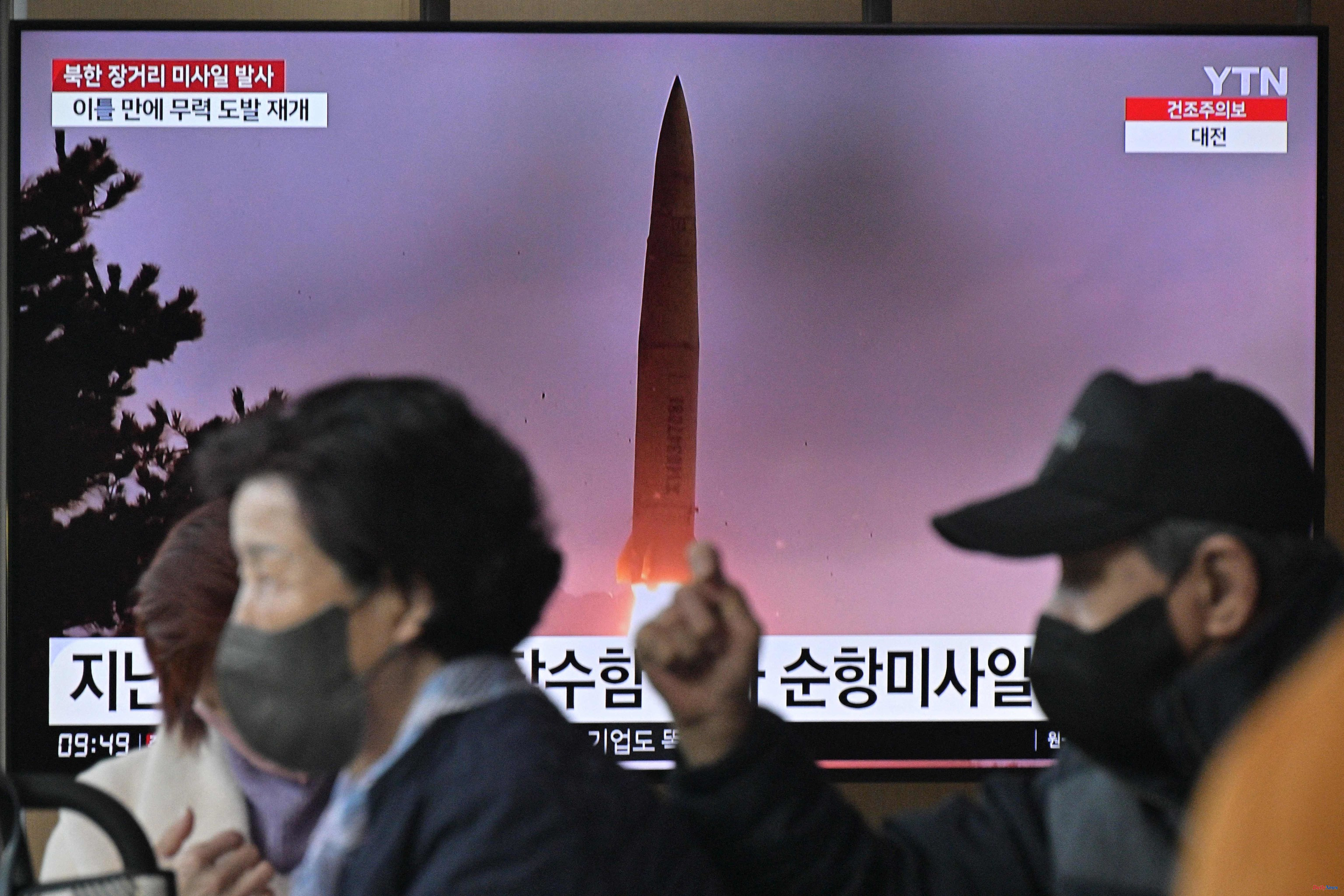North Korea fired an intercontinental ballistic missile (ICBM) on Thursday, Seoul said, its third launch this week to coincide with a summit between the South Korean and Japanese leaders in Tokyo to strengthen ties in the face of growing aggressiveness from Pyongyang.
"Our armed forces detected a long-range ballistic missile fired from around the Sunan area in Pyongyang," the South Korean Joint Chiefs of Staff said, adding that it was an ICBM.
The missile was fired with an upward trajectory, not outward, which prevents it from flying over neighboring countries, and traveled about 1,000 km, the Joint Chiefs of Staff added.
The Japanese cabinet office said the missile reached a maximum height of more than 6,000 km.
Japanese Prime Minister Fumio Kishida told reporters that he would meet with his National Security Council ministers. "Peace and stability in the region are a very important issue," Kishida added.
It is the third show of force since Sunday, and also coincides with the largest joint military exercises in five years between South Korea and the United States.
The new launch came hours before the leaders of South Korea and Japan meet in Tokyo to discuss, among other things, Pyongyang's nuclear and missile programs.
South Korean President Yoon Suk Yeol arrived in the Japanese capital around noon on Thursday with the aim of opening "a new chapter" between these two key US allies in the region.
That summit, the first in 12 years, comes as the two neighbors seek to mend their diplomatic relations, strained by Japanese atrocities during their 35-year colonial rule.
Both South Korea and Japan have increased their defense budgets and joint military exercises, which Yoon has called essential for regional and global stability.
"There is a growing need for Korea and Japan to cooperate in this time of crisis, with the escalation of North Korean nuclear and missile threats," Yoon said in a written interview with various media.
"We cannot waste time leaving the tense relations between Korea and Japan unattended. I believe that we must end the vicious cycle of mutual hostility and work together to serve the common interests of our two countries," he added.
Analysts said North Korea timed the launch on the day of the summit to give double warning effect to its neighbors while protesting moves by Seoul and Washington.
Leader Kim Jong Un ordered this month to intensify exercises in preparation for a "real war."
"For a North Korea that is constantly looking for excuses to justify its hostile activities and weapons development, this is a good time for Kim to get out its missiles," said Soo Kim, a former CIA Korea analyst now with the consulting firm. LMI.
In turn, Leif Easley, a professor at Ewha University in Seoul, pointed out that the launch was an attempt by Kim to "threaten Tokyo for deepening trilateral cooperation with Washington and Seoul and pressure South Korea to desist from joint maneuvers." with the United States.
Washington and Seoul are intensifying their defense cooperation in the face of growing threats from the North, which has conducted a series of tests of banned weapons in recent months.
On Tuesday, North Korea fired two short-range ballistic missiles in its first launch since the exercises began, the biggest in five years, according to the South Korean military.
The maneuvers called Escudo de Libertad began on Monday and should last 10 days.
Earlier, the South Korean military revealed that it conducted a military exercise with the United States that included simulated precision strikes against key North Korean facilities, ahead of Freedom Shield.
North Korea says the moves are a dress rehearsal for an invasion and has warned it will take "overwhelming" actions in response.
Analysts have pointed out that Pyongyang could use the maneuvers as a pretext for more missile launches or even a nuclear test.
Last year, North Korea declared itself an "irreversible" nuclear power and launched a record number of missiles.
According to the criteria of The Trust Project












